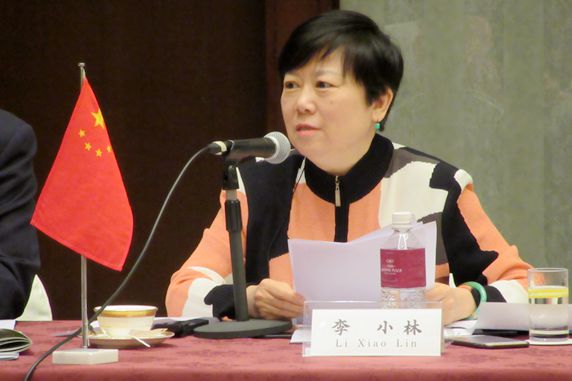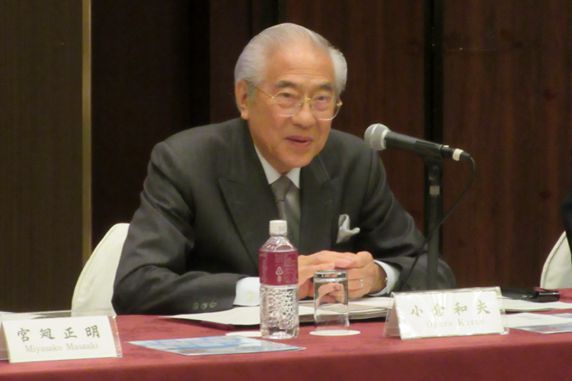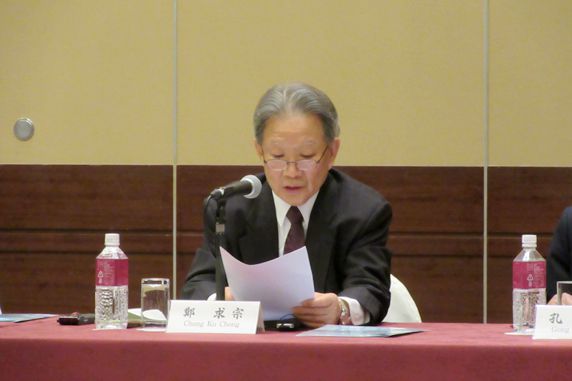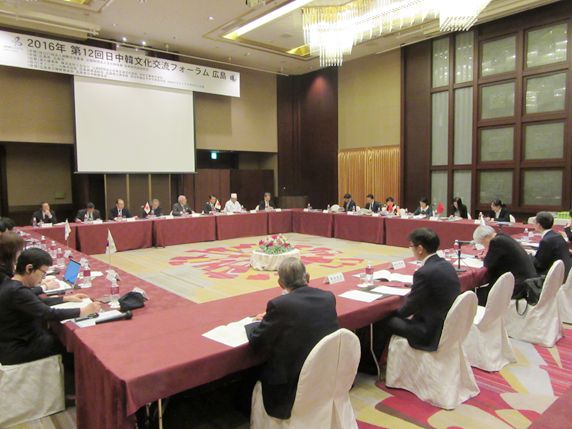
President Li Xiaolin said in her opening speech that the three countries, China, Japan and Korea, all located in North-East Asia. They are close neighbors linked by a narrow strip of water and keep close and friendly exchanges. The people of the three countries learned each other during the thousand years of history of cultural exchanges, which created their own charming national culture and also enriched the civilization of the East-Asia. Therefore, the three countries established a mutual understanding and recognition basis that is far beyond other countries’ relations. President Li hoped that the three countries could take this forum as an important opportunity to promote the cultural exchanges, commonly show the charm and their characteristic culture to the world, enhance the mutual understanding and friendship of the peoples of the three countries and make efforts to promote the long-term, healthy and stable development of the trilateral relations.


Chung Ku Chong said that the three countries with long and friendly history have many common points in the field of culture. This is a good basis for the exchange. He hoped that the three countries’ personages in cultural field could exchange honestly and commonly push forward their cultural exchanges.
The theme of this meeting was the “Food Culture and International Exchanges among China, Japan and Korea”. The experts from the three countries introduced respectively the features of their own food and the charm of their culture on the meeting and the representatives had an in-depth and pragmatic discussion on the topics of how to further enlarge the three countries’ cultural exchanges through friendly cities, youth and other ways, and reached an extensive consensus. The meeting achieved a complete success.

The China-Japan-Korea Cultural Exchange Forum was launched in Seoul, Korea in 2005 and held the first meeting there. It is held in one country each year in turn. The original purpose of the forum is to actively promote the cultural exchanges of the three countries on the basis of respecting their culture diversity, so as to protect the healthy development of the trilateral relations and the peace and stability of the North-East Asia.


